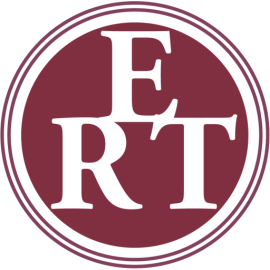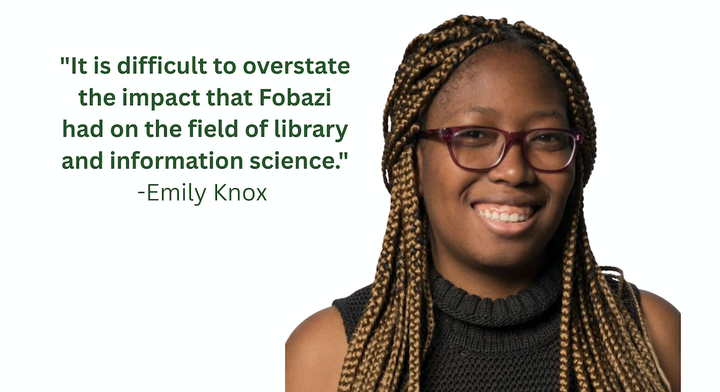The Words & Money Weekly Newsletter: July 25, 2025
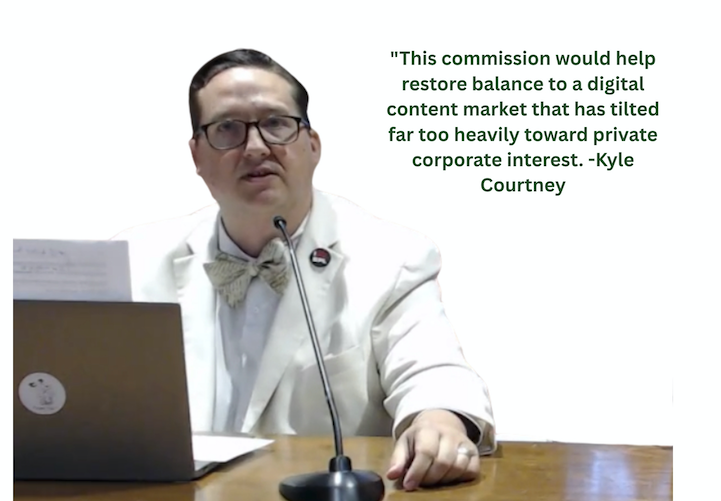
Among the headlines this week, the Trump administration released its long anticipated AI Action Plan, which notably fails to even mention the word copyright. A week after releasing a strategic plan, ALA leaders stepped up to clarify a new policy. And among the headlines in our weekly media roundup, The Queue, lawmakers held a hearing on ebook and freedom to read bills in Massachusetts; fired register of copyrights Shira Perlmutter got her day in court; and big changes at Library Journal and School Library Journal.
Trump Administration's 'AI Action Plan' Snubs Creators
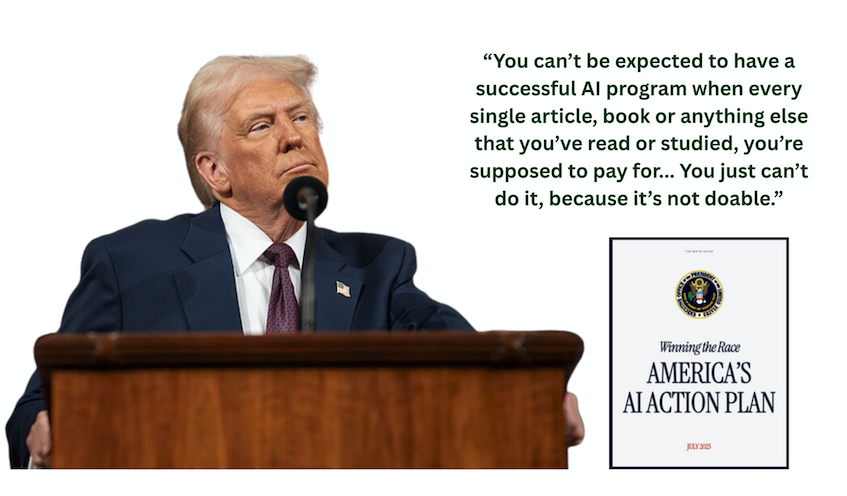
In the July 23 report the Trump administration suggests that American tech companies "must be unencumbered by bureaucratic red tape," to win an AI arms race with China. But the report is also notable for what's not in it—any discussion of copyright or the impact of AI on the creative economy.
ALA Clarifies That It Is Not Closing Access to Its Executive Board Meetings
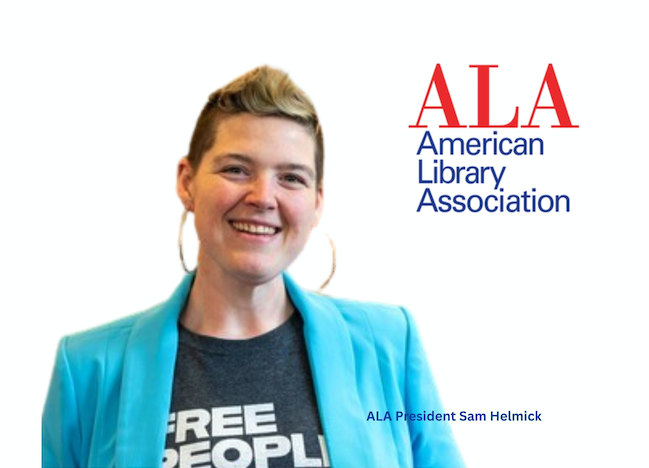
ALA leaders cleaned up confusion about its new meeting policy after members questioned whether the association was moving to limit transparency.
The Queue: Library News for the Week Ending July 25, 2025
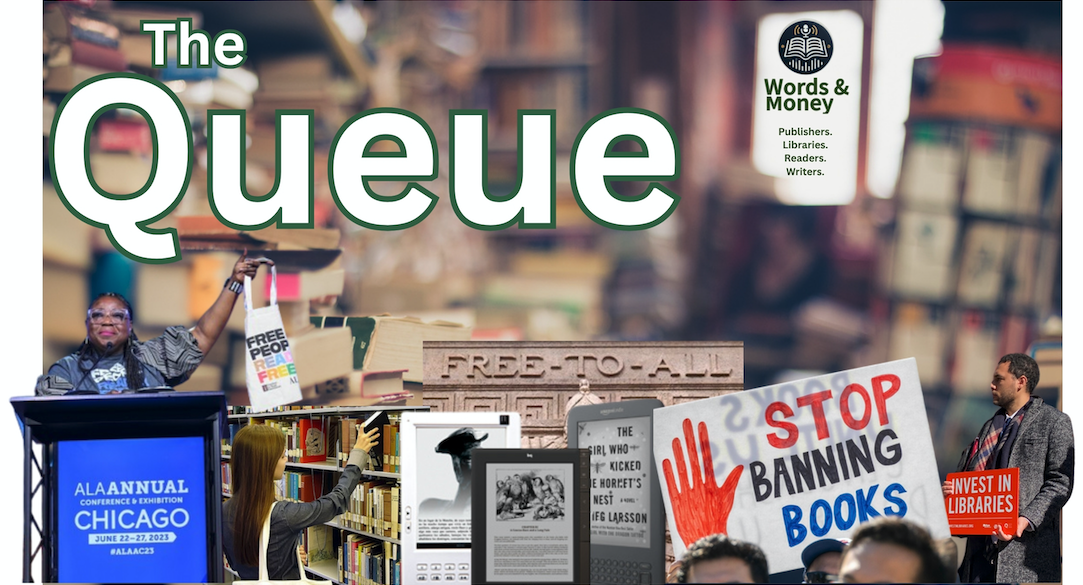
Massachusetts librarians and library supporters showed up this week for a hearing on several bills before the Massachusetts Joint Committee on Tourism, Arts and Cultural Development in support of two legislative efforts: one to protect the freedom to read, and another that seeks to establish a commission to study ebook legislation.
Among those testifying was Kyle Courtney, a lawyer and librarian who serves as the Director of Copyright and Information Policy for the Harvard Library, and who co-founded the advocacy group Library Futures and the Ebook Study Group. In a blog post on the study group website this week, Courtney expanded upon his testimony in favor of a library ebook law in the state, telling lawmakers that Massachusetts has an opportunity to build upon Connecticut's recently passed ebook law.
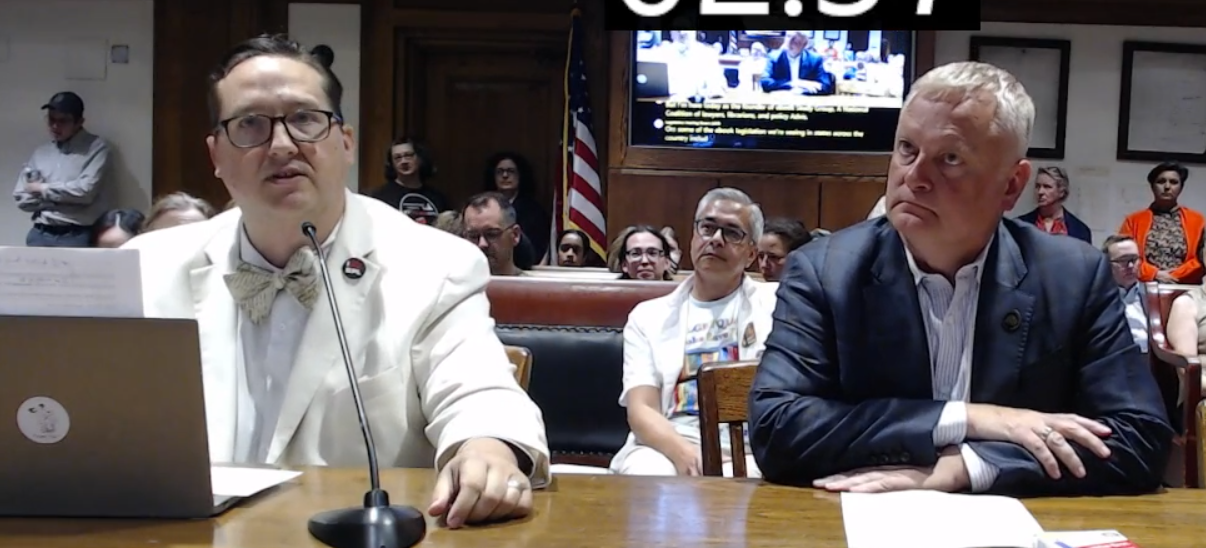
While the ebook bill before the Massachusetts legislature (H.3595 and its senate companion S.2330) wouldn’t create new regulations, they would create a special commission to study the issues and recommend a path forward—an important first step, Courtney writes.
"Massachusetts libraries, like the libraries in the rest of the U.S., are being forced to rent digital books under overly restrictive terms that substitute the publisher’s priorities for the library's mission," he explains in his post. "This Commission would help restore balance to a digital content market that has tilted far too heavily toward private corporate interest. It would empower Massachusetts to act not as a passive buyer, but as a thoughtful policymaker, on behalf of every library, every patron, and every taxpayer in the state."
The hearing is yet another sign that efforts to address issues around digital content licensing in libraries is heating up again in state legislatures, some three years after Maryland's groundbreaking ebook law was struck down by a federal judge over a conflict with federal copyright law. In May, Connecticut passed its library ebook law, and lawmakers in New Jersey are also considering a bill.
Meanwhile, will Massachusetts be the next state to enact a Freedom to Read law?At the hearing, the committee also heard from those supporting the commonwealth's new "freedom to read" bills. Among those testifying in favor was Cambridge Public Library director and ALA president-elect Maria McCauley.
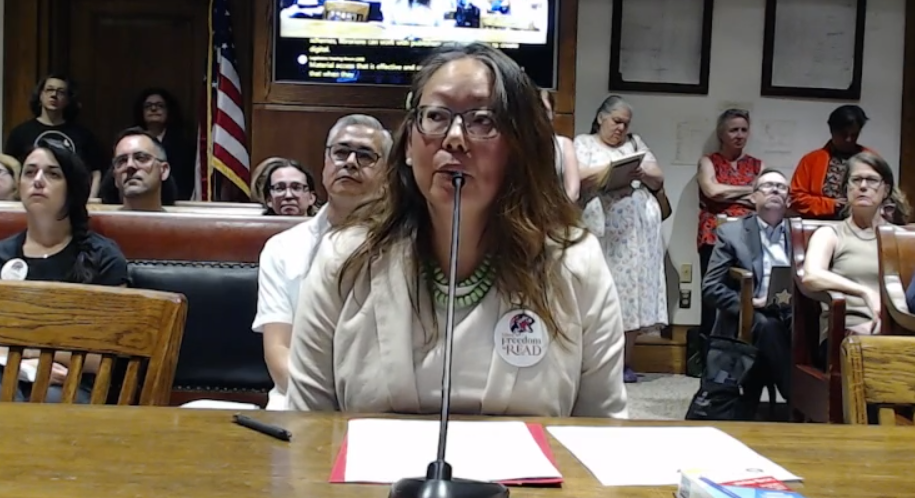
"I urge this committee to vote in favor of the Act regarding freedom of expression through our libraries," McCauley told legislators."This act is a vital piece of legislation that protects the fundamental American right to free speech, free inquiry, and the right for all Massachusetts residents to form and express their own opinions." The full hearing is available here.
PEN America also submitted testimony supporting the bill.
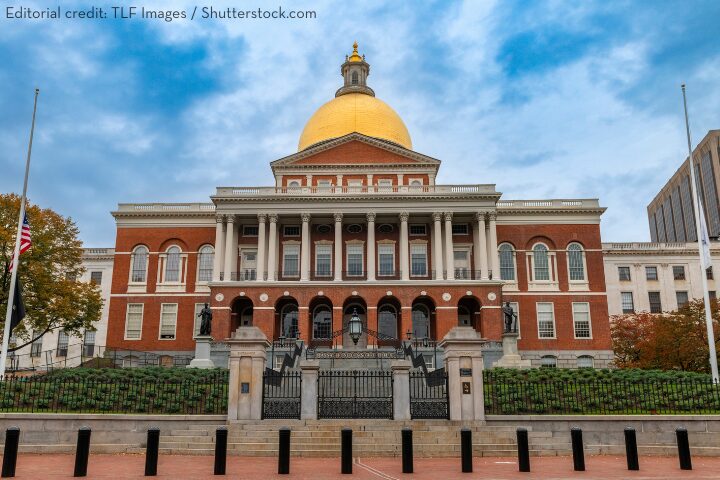
"The bill would affirm the freedom to read as a core component of the right to free expression, strengthen processes for the curation of school library materials, ensure materials are not inappropriately removed, and protect librarians so they can do their jobs free from political threats and intimidation," PEN America told legislators.
WAMC Public Radio also covered the hearing.
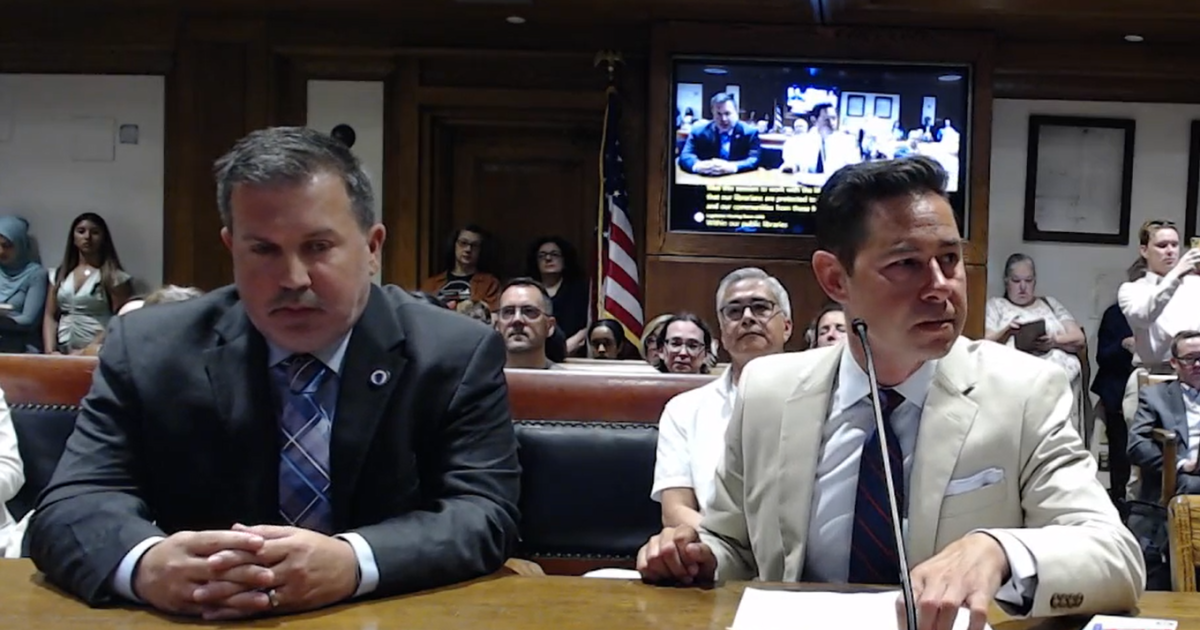
"Both bills have been considered and even merged in the past, clearing the Joint Committee in 2024, only to languish after being sent to the Senate Committee on Ways and Means," WAMC reports. But the bills are getting "new life as book bans and challenges continue across the country," the outlet reports, "something Massachusetts isn’t immune to."
Another National Story on Library Ebook Laws
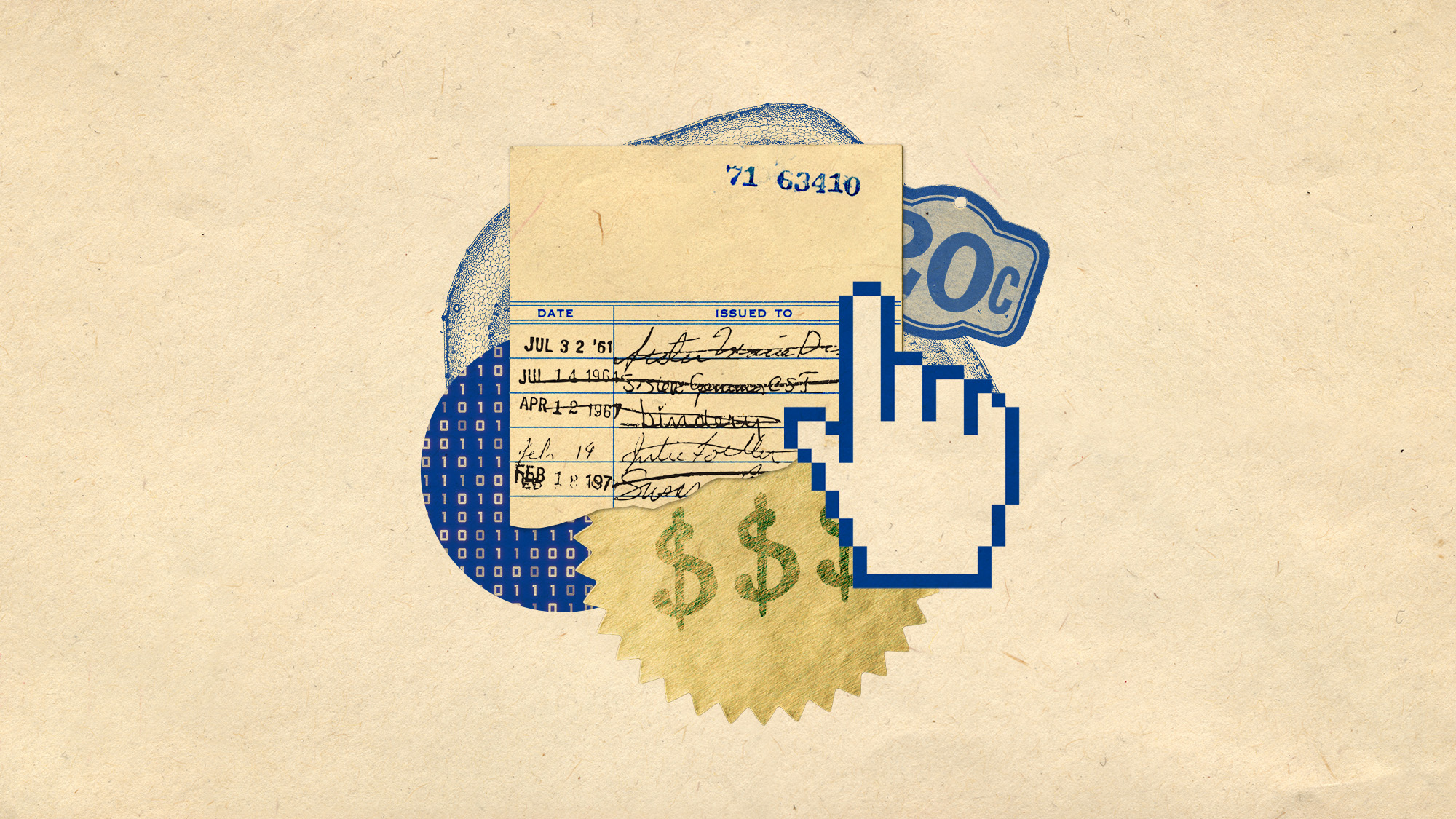
The Week is the latest outlet to pick up on the burgeoning effort of libraries to push new state ebook legislation.
"The increasing ubiquity of e-books might be a good thing for avid readers, but walk into a library and you will hear a different story," the article notes. "Many libraries across the United States are locked in a battle over e-books, which generally cost much more to purchase than printed books. This expense can weigh heavily on libraries, thanks to the high level of demand for e-books. Now, some of these institutions are fighting back against the higher costs."
One Library's Rocky Library Ebook Transition
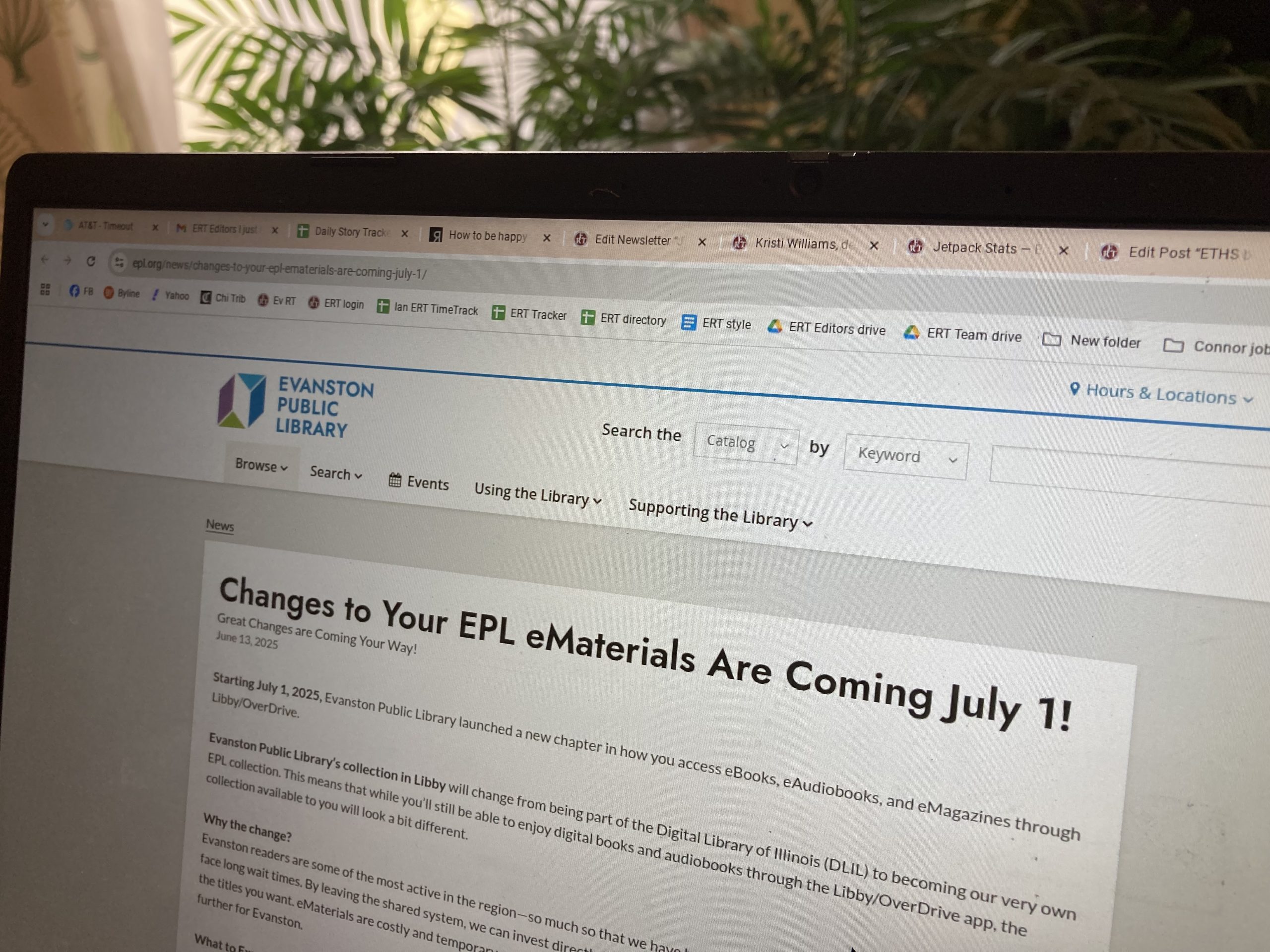
Via the Evanston RoundTable, the Evanston Public Library's decision to leave its digital consortium reveals some of the complexity of the current licensed access ebook market.
"The cost of belonging to the consortium paired with wait times reaching on average 63 days for library materials were among reasons library staff opted to leave the Digital Library of Illinois," the report notes. "But the transition was not without hiccups, and many library patrons lost holds and checkouts in the process."
Louisville Library Has a $2 Million Plan to Shorten Wait Times
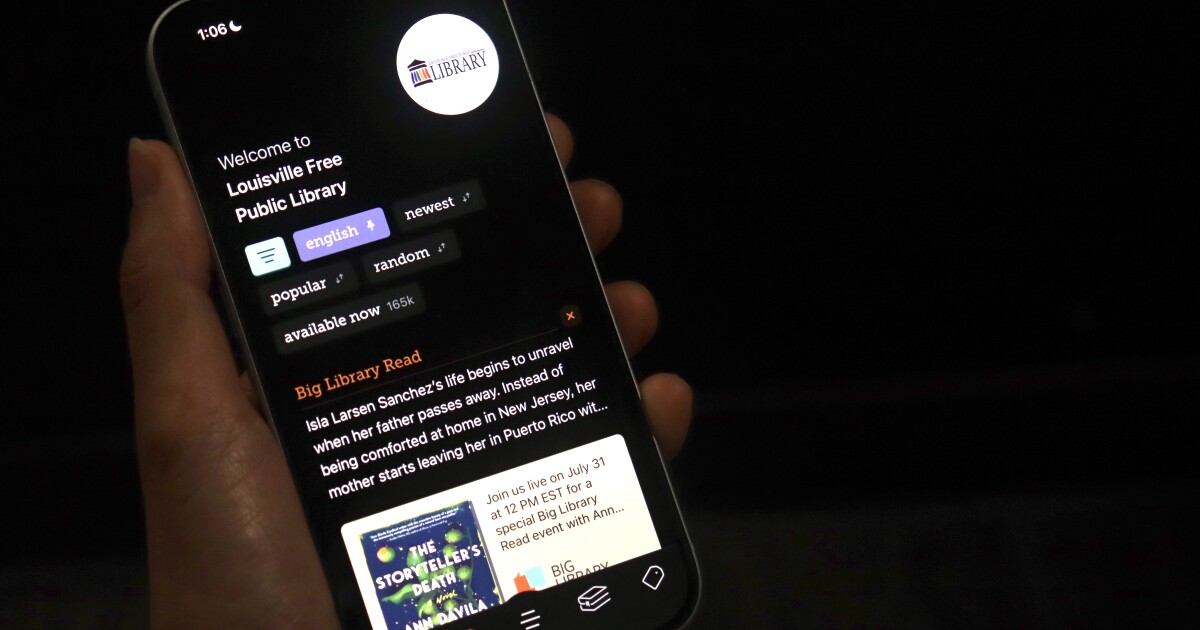
Calling out the long wait times for digital books, Louisville Public Media reports that the Louisville Free Public Library hopes to spend $2 million on thousands of books, print and digital, to shorten the queue.
"There are nearly 700 digital titles available through the Louisville Free Public Library that have waitlists up to five months long," the report notes. "But Kiera Hall, the Library Foundation’s communications director, said she’ll have to wait five-and-a-half months before she can check out the latest Hunger Games book, Sunrise on the Reaping by Suzanne Collins, from Libby."
A 'Geographic' Split in Freedom to Read Laws
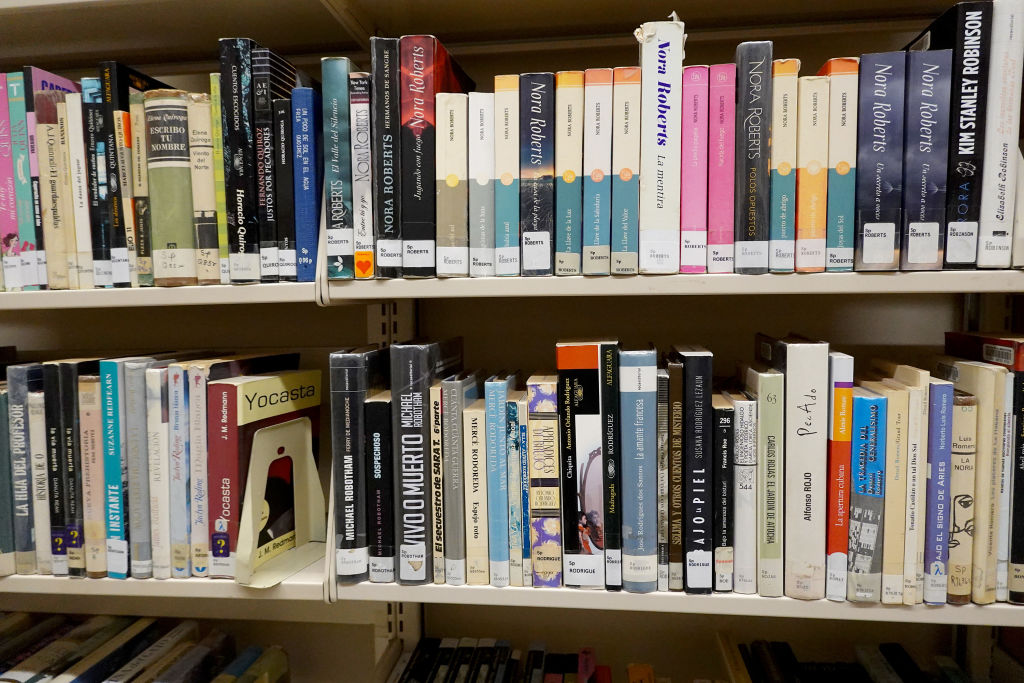
The Ohio Capital Journal this week picked up on the EveryLibrary report on the legislative landscape for libraries, which we reported on last week, making a noteworthy observation.
"The geographic split among these policies is stark. In Southern and Plains states, new laws increasingly criminalize certain actions of librarians, restrict access to materials about gender and race, and transfer decision-making power to politically appointed boards or parent-led councils," the report notes. "In contrast, several Northeastern states have passed legislation protections for libraries and librarians and anti-censorship laws."
Judge Hears Motion to Restore Fired Register of Copyrights

Via Law360, a federal judge this week heard oral arguments on fired register of copyrights Shira Perlmutter's motion for a preliminary injunction reinstating her.
"This is a case about the president trying to jump over his line to exceed his authority under the Constitution to take powers that have not been allocated to him by Congress and asking the court to look the other way while that happens," attorneys for Perlmutter argued, according to the report. "In May, Judge Kelly rejected Perlmutter's motion for a temporary restraining order, saying she had not demonstrated irreparable harm. 'I do think that it's a tricky case,' the judge said at the conclusion of Wednesday's hearing, promising to issue a decision soon."
The Internet Archive Is Now a Federal Depository Library
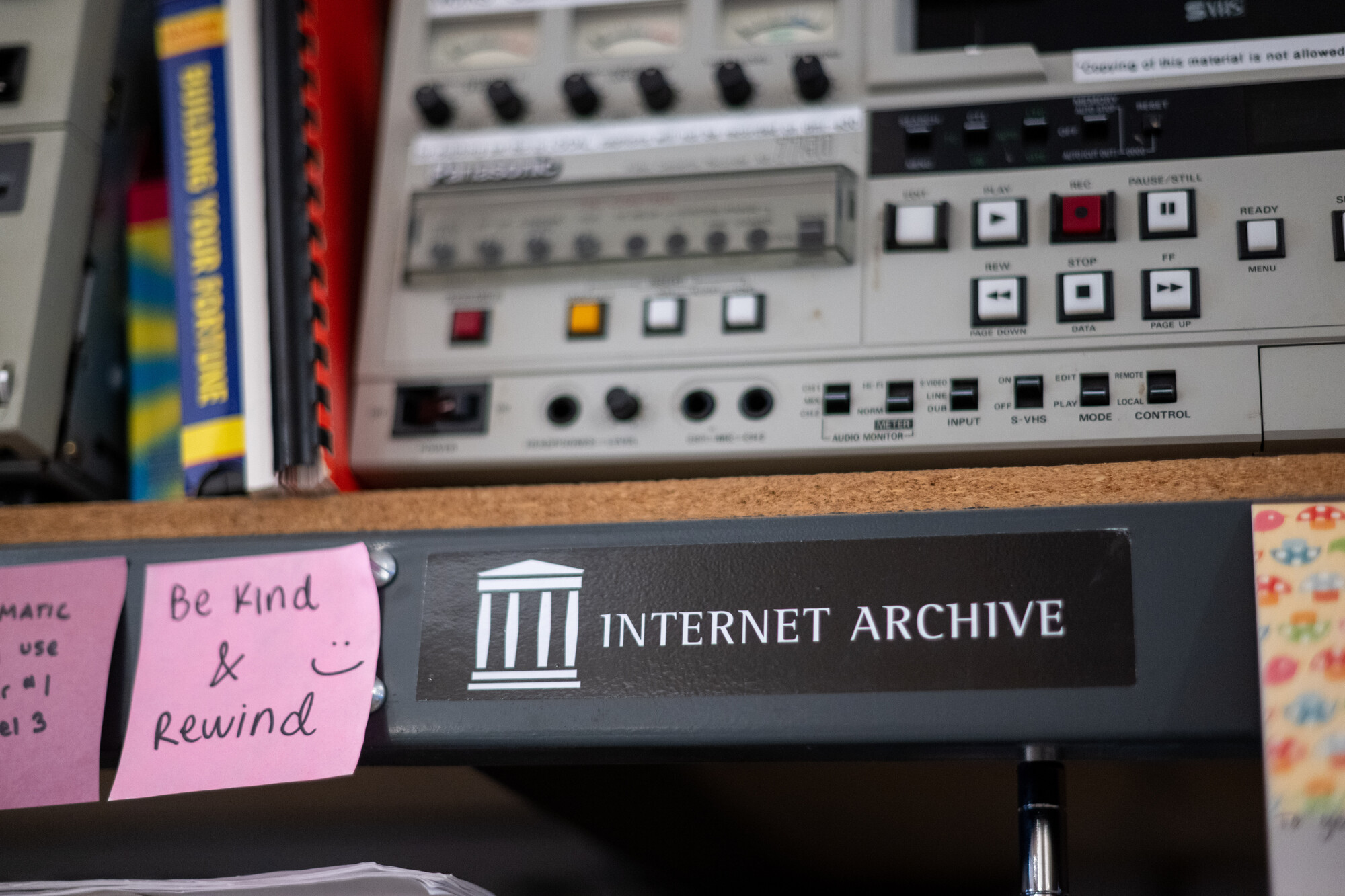
When a group of publishers sued the Internet Archive in 2020 over its scanning and lending of books one of their more specious arguments was that the organization wasn't a library. Well, settling the question, KQED reports this week that the Internet Archive has now been designated a Federal depository library.
"The San Francisco-based Internet Archive now has federal depository status, joining a network of over 1,100 libraries that archive government documents and make them accessible to the public," the report notes. "California Sen. Alex Padilla made the designation in a letter sent Thursday to the Government Publishing Office, which oversees the program."
Trump Dismisses AI Copyright Concerns

As we reported this week, the Trump Administration released its AI action plan this week, which completely omitted concerns from the creative community. And in remarks delivered at an event this week, the president, who has been known to file a copyright suit himself, downplayed the concerns of the creative industries.
“When a person reads a book or an article, you’ve gained great knowledge. That does not mean that you’re violating copyright laws or have to make deals with every content provider,” reports Variety. “You just can’t do it. China’s not doing it… You have to play by the same set of rules… It just doesn’t work that way. Of course, you can’t copy or plagiarize an article, but if you read an article and learn from it, we have to allow AI to use that pool of knowledge without going through the complexity of contract negotiations, of which there would be thousands for every time we use AI.”
More on Harvard's Effort to Create Quality Datasets for AI Training

Harvard Law Today has a good interview with Assistant Dean for Library and Information Services at Harvard Law School Amanda Watson on the library's Institutional Data Initiative, which aims to create better quality data for AI training.
"On a basic level, AI needs to consume information to be good at what it does. So, who better to tell it how to consume information than information professionals and scientists?," Watson tells the publication. "To this point, the quality of data available for AI training has been a mixed bag. So, IDI is focused on injecting a wide range of high-quality information into this process. By training on large swaths of open datasets from libraries, AI takes in better information, which also helps significantly improve the technology’s ability to differentiate between competing ideas. At the scale of data that libraries can provide, AI will not just simply receive better information to base its work off of—it will actually help AI function better."
What's the Future Look Like for Law Librarians?

Above the Law has a piece about the future of law librarians in an AI world. written by a lawyer and writer who attended the American Association of Law Librarians conference in Portland, Oregon.
"By teaching and encouraging lawyers to use AI effectively, are law librarians basically working themselves out of a job?" writes Stephen Embry. "Just as they did in the past, law librarians’ roles will evolve from caretakers of the information to caretakers of the new tools that access the information. They need to be the guardians of those tools and how to safely use them, for what and when... Tomorrow’s librarian will need to be in charge not of a library but of the AI function within a law firm."
ALA Seeks Input for New Virtual Event
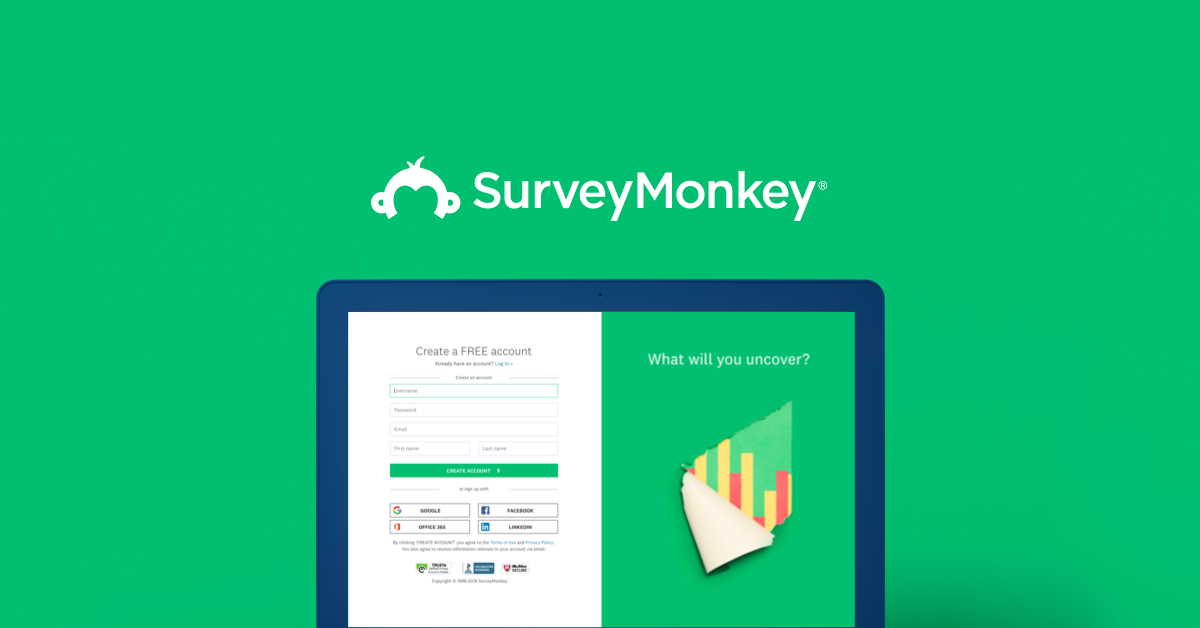
In a message to members, the American Library Association this week announced that it is creating "a new professional development event" for the library community. And it's asking members to fill out a survey on what such an event might look like.
"Next February, ALA will host a one-day virtual conference designed to equip library professionals with timely insights and practical tools to navigate an ever-evolving landscape. As we shape this event, your input is essential. Building on feedback from this year’s Annual Conference, we’re committed to ensuring the 2026 virtual event—and the launch of our 150th anniversary—reflects what matters most to you." The survey closes on July 30.
Citing AI, OCLC Announces Job Cuts
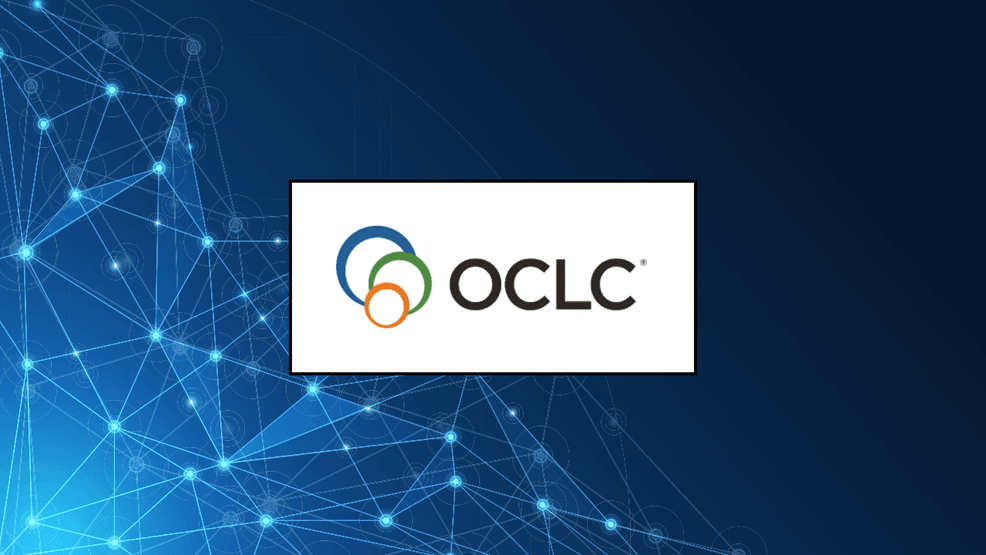
Via local ABC affiliate WSYX, the Dublin, Ohio-based OCLC this week confirmed that they have laid off about 80 employees, citing the changing tech landscape. In a statement, OCLC officials cited "shifts in technical skill requirements, growing influence of artificial intelligence, and ongoing changes in higher education and libraries," but added that the company is also looking to hire for new roles.
And Finally This Week...
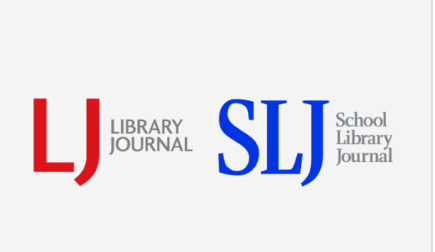
MediaSource, Inc., this week announced a major reorganization, and longtime publisher Rebecca Miller and SLJ editor-in-chief Kathy Ishizuka are both out. "As is the case for many organizations in the field, MSI is navigating a rapidly evolving landscape," reads a note on the LJ website.
Hallie Rich, who took the reins as Library Journal editor-in-chief in 2023, will step in as editorial director of Library Journal and School Library Journal.
Yes, it's a tough time for media, and there will be time to assess what this move means for these storied brands, especially with LJ set to celebrate its 150th anniversary next year. As an LJ alum, I had the pleasure of working with Rebecca Miller for almost a decade. And while I never had the chance to work directly with Kathy Ishizuka, I also hold her in the highest regard. Rebecca and Kathy are consummate professionals, distinguished leaders, and great people. It's hard to imagine LJ and SLJ without them.
At the same time, congratulations and best of luck to Hallie Rich, who I also have great respect for going back to her days at the Cuyahoga County Public Library. Despite the evolving media landscape, Library Journal and School Library Journal are important publications for the profession, and they are needed more than ever in these turbulent times. Here's hoping for a vibrant next chapter under Hallie's leadership.



